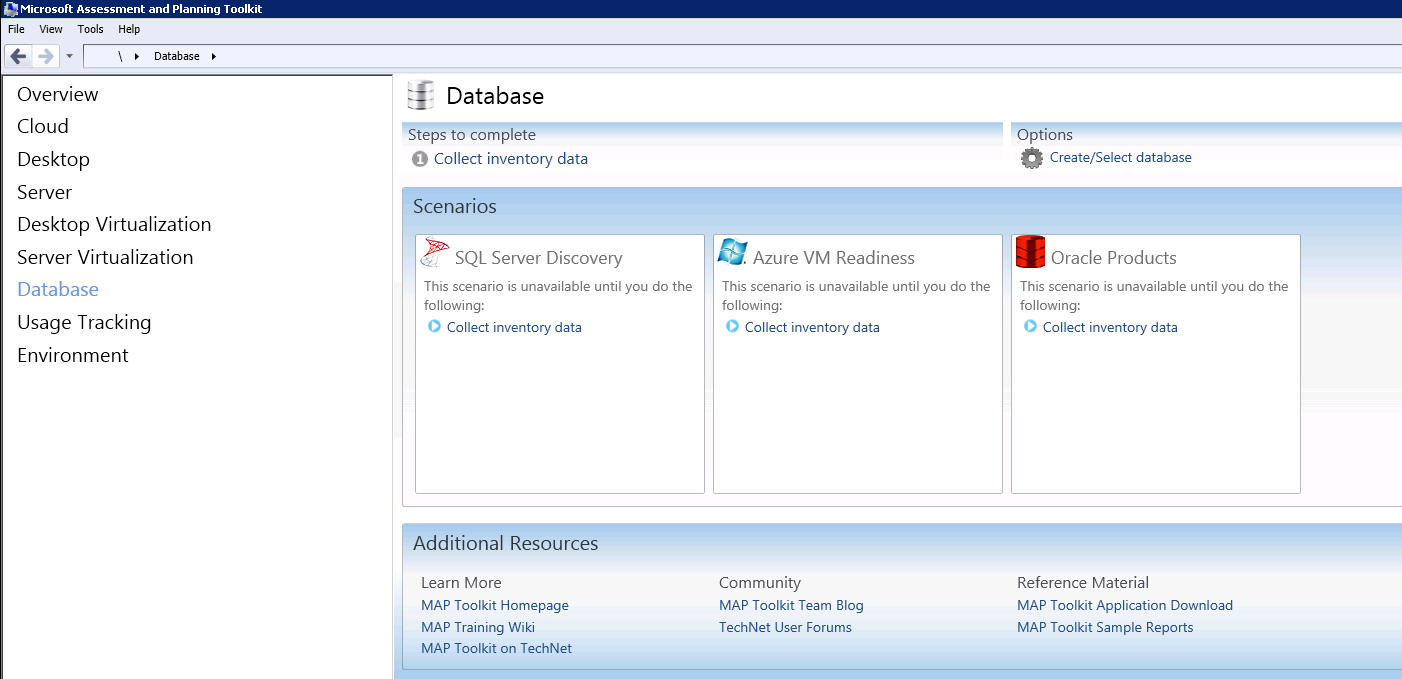The Microsoft Assessment and Planning Toolkit (MAP) is a very useful tool for scanning your network to find instances of SQL Server plus all manner of detailed information about the installed product, OS and hardware it sits on.
There is an issue with it the database it uses to store the data it collects, however. Assuming you don't have an instance called MAPS on your server, the product will install using LocalDB (a cut down version of SQL Server Express) and puts the databases on your C: drive. If you then scan a large network you could easily expand the database to 10GB which may cause issues on a server when that drive is often one of the smallest. However, there is a simple solution: connect to LocalDB using Management Studio, detach the databases, move to a different drive, set permissions on the new location if required and reattach the database. How do you connect to LocalDB? Here you go:
Connect to (localdb)\MAPTOOLKIT
The databases I moved were, MAP, MAP_ConfigInfo and SystemInfo:
The default location for the databases is:
C:\Users\<username>\AppData\Local\Microsoft\Microsoft SQL Server Local DB\Instances\MAPToolkit\
<Click image to enbiggen>
There is an issue with it the database it uses to store the data it collects, however. Assuming you don't have an instance called MAPS on your server, the product will install using LocalDB (a cut down version of SQL Server Express) and puts the databases on your C: drive. If you then scan a large network you could easily expand the database to 10GB which may cause issues on a server when that drive is often one of the smallest. However, there is a simple solution: connect to LocalDB using Management Studio, detach the databases, move to a different drive, set permissions on the new location if required and reattach the database. How do you connect to LocalDB? Here you go:
Connect to (localdb)\MAPTOOLKIT
The databases I moved were, MAP, MAP_ConfigInfo and SystemInfo:
The default location for the databases is:
C:\Users\<username>\AppData\Local\Microsoft\Microsoft SQL Server Local DB\Instances\MAPToolkit\
<Click to enbiggen>



Comments
Post a Comment